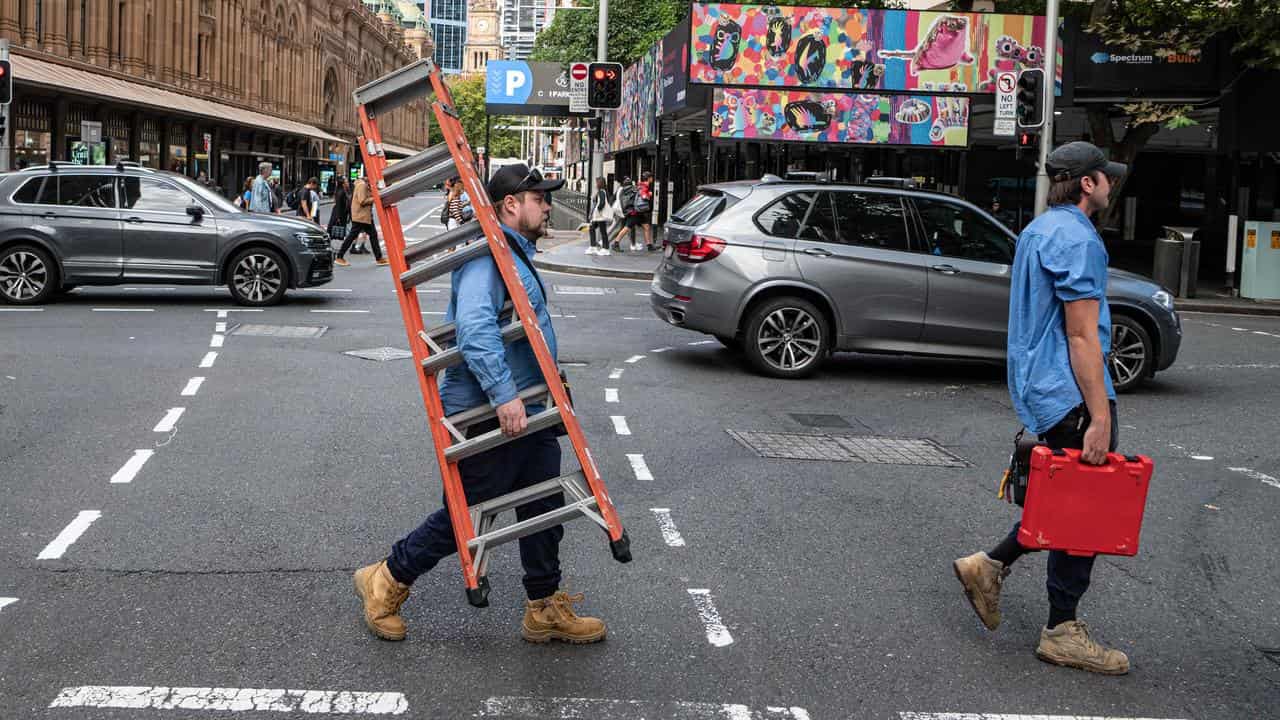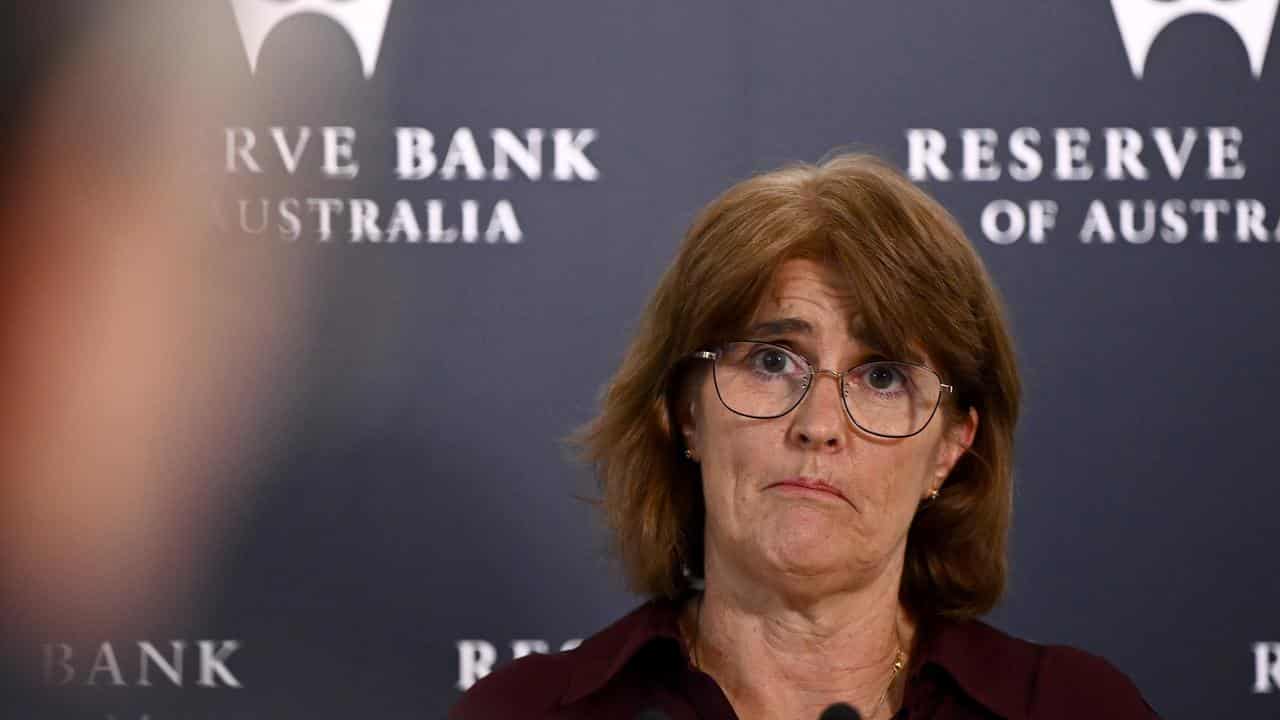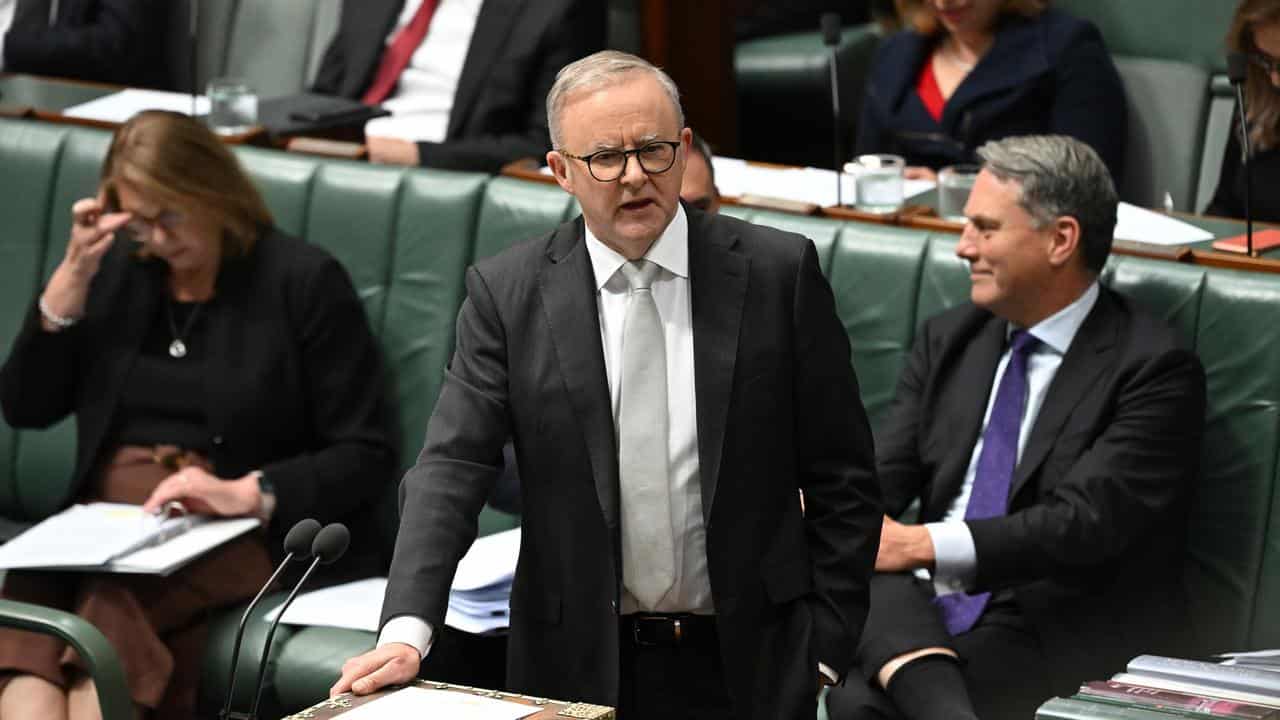
The Reserve Bank's inflation battle is unlikely to be thrown off course by a bump for Australia's lowest-paid workers, economists say.
Millions of employees on minimum and award wages will get a 3.75 per cent pay rise from July following the Fair Work Commission's annual decision.
Based on a new hourly rate of $24.10, full-time workers will take home an extra $33 every week.
With inflation running at 3.6 per cent in the year to March, pay packets will be growing a little faster than consumer prices for the one-in-five employees affected.

Economists were expecting the minimum wage to go up by anywhere between 3.5 per cent and four per cent - above the percentage increase suggested by employer groups, but lower than requested by unions.
CommSec senior economist Ryan Felsman said the decision would be welcomed by the central bank as it would diffuse the risk of a wage-price spiral, which is when wages chase prices in a feedback loop.
"While the RBA has forecast annual wages growth of 3.8 per cent by the end of 2024, the outcome supports the view that wage-sensitive services inflation should ease later this year," Mr Felsman wrote in a note.
Employment Minister Tony Burke said the commission's decision showed Australia was turning a corner after "a decade of wages being kept deliberately low".

Prime Minister Anthony Albanese added that this was the third consecutive increase on the minimum wage under his government.
"This is how we make sure Australians earn more and keep more of what they earn," he told a caucus meeting.
Unions wanted an increase of five per cent, while business groups recommended between two and three per cent.
Fair Work Commission president Adam Hatcher said it was not an appropriate time to raise wages significantly above the inflation rate because labour productivity was stagnating.
The fact workers were in line for the stage-three personal income tax cuts and other cost-of-living support was also factored in, as well as the upcoming boost to the superannuation guarantee contribution.
Council of Small Business Organisations Australia chief executive officer Luke Achterstraat said the decision would pile more pressure on small businesses "already weathering a perfect storm".
“The levy has broken for many small businesses with rising energy, rent, insurance and borrowing costs," he said.

Australian Council of Trade Unions secretary Sally McManus said when workers had more money to spend, it would stimulate local businesses and drive economic growth.
"(Monday's) decision is a win for workers, their families and the broader Australian economy.”
After announcing its wage decision, the Fair Work Commission also revealed it would soon consider gender undervaluation issues in feminised industries.
Greens senators and Ms McManus criticised the commission for not introducing an interim pay rise in those sectors.
But the commission's executive director Joelle Leggett told Senate Budget Estimates there had not been full opportunity for interested parties to produce evidence and make submissions about gender undervaluation.
Cabinet minister Murray Watt said the government might not have the capacity to unilaterally provide a pay rise to those in feminised industries but they have been "very supportive" of the actions the commission has taken.









